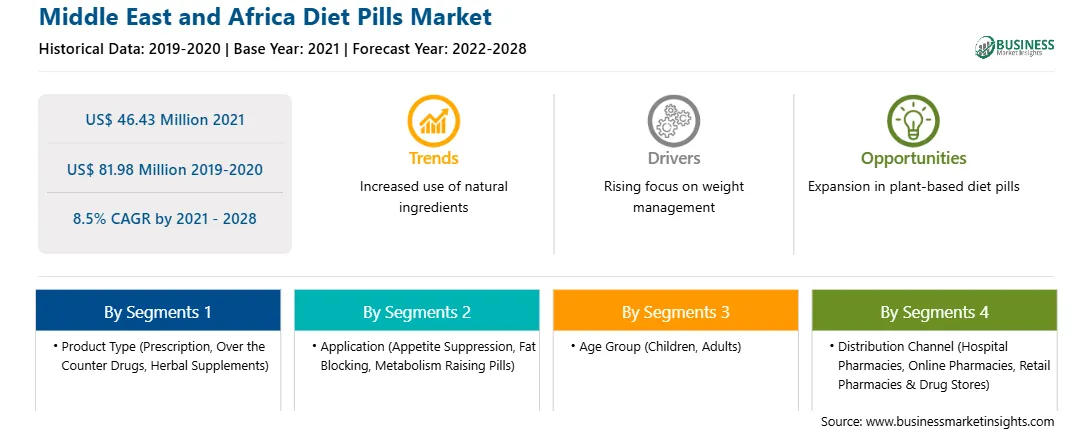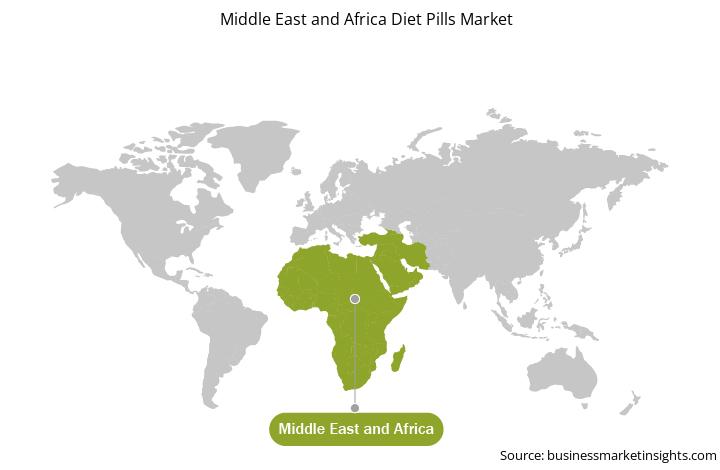Consumers are highly inclined toward plant-based herbal supplements and botanicals, which opens new flourishment avenues for herbal supplement providers in the diet pills market. Consumer preference for botanical extracts is due to a growing desire for clean-label products and concerns about the sustainability and allergenicity of components. The target market for herbal supplements is transitioning from vegans to flexitarians , indicating a shift in customer preference. According to the Good Food Institute, the market for plant-based supplements experienced a surge in sales in Q1 2020. Further, more than half of consumers of diet supplements have raised their consumption, and more than a third of the rest are planning to switch to plant-based supplements in Q2 2020. Thus, this shift from animal proteins toward plant-based proteins is likely to fuel the growth of the plant-based supplement market in the coming years.
With the new features and technologies, vendors attract new customers to grow their footprints in emerging markets. This factor is likely to drive the MEA diet pills market. The MEA diet pills market is expected to grow at a substantial CAGR during the forecast period.
Strategic insights for the Middle East and Africa Diet Pills provides data-driven analysis of the industry landscape, including current trends, key players, and regional nuances. These insights offer actionable recommendations, enabling readers to differentiate themselves from competitors by identifying untapped segments or developing unique value propositions. Leveraging data analytics, these insights help industry players anticipate the market shifts, whether investors, manufacturers, or other stakeholders. A future-oriented perspective is essential, helping stakeholders anticipate market shifts and position themselves for long-term success in this dynamic region. Ultimately, effective strategic insights empower readers to make informed decisions that drive profitability and achieve their business objectives within the market.

| Report Attribute | Details |
|---|---|
| Market size in 2021 | US$ 46.43 Million |
| Market Size by 2028 | US$ 81.98 Million |
| Global CAGR (2021 - 2028) | 8.5% |
| Historical Data | 2019-2020 |
| Forecast period | 2022-2028 |
| Segments Covered |
By Product Type
|
| Regions and Countries Covered | Middle East and Africa
|
| Market leaders and key company profiles |
The geographic scope of the Middle East and Africa Diet Pills refers to the specific areas in which a business operates and competes. Understanding local distinctions, such as diverse consumer preferences (e.g., demand for specific plug types or battery backup durations), varying economic conditions, and regulatory environments, is crucial for tailoring strategies to specific markets. Businesses can expand their reach by identifying underserved areas or adapting their offerings to meet local demands. A clear market focus allows for more effective resource allocation, targeted marketing campaigns, and better positioning against local competitors, ultimately driving growth in those targeted areas.

MEA Diet Pills Market Segmentation
The MEA diet pills market is segmented into product type, application, age group, distribution channel, and country. Based on product type, the MEA diet pills market is segmented into prescription, herbal supplements, and over the counter drugs. The prescription segment dominated the market in 2020. Based on application, the MEA diet pills market is segmented into appetite suppression, fat blocking, metabolism raising pills, and others. The appetite suppression segment led the market in 2020. Based on age group, the MEA diet pills market is bifurcated into adults and teenagers. The adults segment dominated the market in 2020. Based on distribution channel, the MEA diet pills market is segmented into hospital pharmacies, online pharmacies, and retail pharmacies & drug stores. The hospital pharmacies segment led the market in 2020. Based on country, the MEA diet pills market is segmented into Saudi Arabia, South Africa, the UAE, and the Rest of MEA. The Saudi Arabia segment dominated the market in 2020.
Pfizer Inc. (Arena Pharmaceutical GMBH), Novo Nordisk A/S, GlaxoSmithKline plc, Lovate Health Sciences International Inc., TEVA Pharmaceutical Industries LTD, and Chong’s Health Care are among the leading companies operating in the MEA diet pills market.
The Middle East and Africa Diet Pills Market is valued at US$ 46.43 Million in 2021, it is projected to reach US$ 81.98 Million by 2028.
As per our report Middle East and Africa Diet Pills Market, the market size is valued at US$ 46.43 Million in 2021, projecting it to reach US$ 81.98 Million by 2028. This translates to a CAGR of approximately 8.5% during the forecast period.
The Middle East and Africa Diet Pills Market report typically cover these key segments-
The historic period, base year, and forecast period can vary slightly depending on the specific market research report. However, for the Middle East and Africa Diet Pills Market report:
The Middle East and Africa Diet Pills Market is populated by several key players, each contributing to its growth and innovation. Some of the major players include:
The Middle East and Africa Diet Pills Market report is valuable for diverse stakeholders, including:
Essentially, anyone involved in or considering involvement in the Middle East and Africa Diet Pills Market value chain can benefit from the information contained in a comprehensive market report.